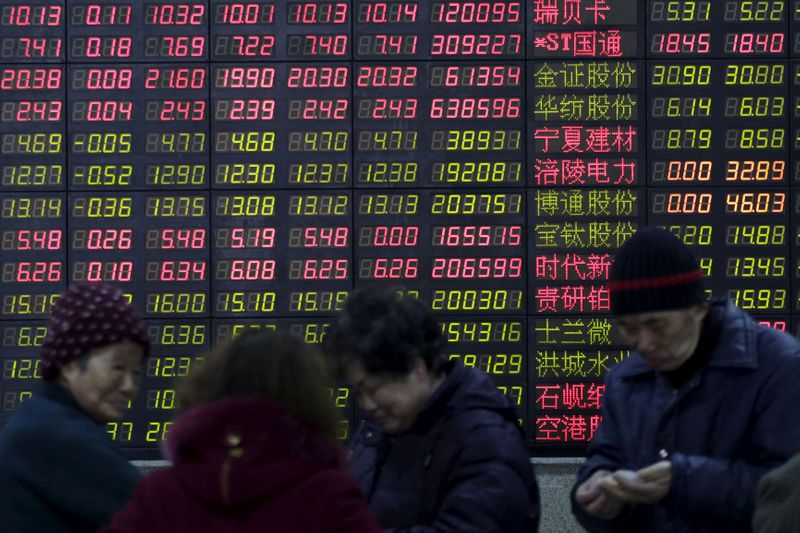Markets steady in early Asia trading amid regional holidays By Reuters

By David Henry
(Reuters) – In early trading on Friday global markets were holding steady or slipping a bit as investors looked over mixed data and watched for the next catalyst.
The Australian S&P/ASX 200 Index was last down 0.15%and futures for the S&P 500 were off 0.1%.
Markets in Greater China and most of Southeast Asia are closed on Friday for the Lunar New Year holiday. China’s stock and bond markets, foreign exchange and commodity futures markets are closed through Feb. 17 for the holiday.
Trading in the United States and Europe on Thursday did not move prices enough to provide much direction, said Tom Piotrowski, a market analyst at CommSec in Sydney.
“We didn’t get much of a lead-in from the northern hemisphere,” Piotrowski said. “Markets are in a bit of a holding pattern waiting for the next catalyst and it is just a question of whether that catalyst is going to be a positive one or a negative one.”
World stock markets were holding close to record highs on Thursday as investors weighed some tepid economic data against increasing vaccinations against COVID-19 and the prospect that more government spending and continued cheap money from central banks will drive higher growth and, eventually, inflation.
The MSCI world equity index, which tracks shares in 49 countries, rose 0.25% on Thursday, adding a ninth-straight day of gains.
On Wall Street, the Nasdaq and S&P 500 eked out gains of 0.4% and 0.2%, respectively, while the Dow Jones Industrial Average slipped 0.02%.
Prices held near records as investors bet on more government spending, although enthusiasm was tempered when U.S. President Joe Biden argued for more infrastructure spending by saying in part that China was poised to “eat our lunch.”
The U.S. government reported that weekly unemployment claims fell slightly last week, but not as much as economists polled by Reuters had expected.
Such labor market woes have strengthened Biden’s push for more spending. Biden, in a meeting on Thursday with members of Congress, said he will ask for heavy investments in U.S. infrastructure.
He added that the United States must raise its game in the face of competition from China. “If we don’t get moving, they are going to eat our lunch,” he said.
Studies show about half of U.S. roads are in poor or mediocre condition and one-third of bridges need work or replacement.
The infrastructure effort, analyst said, could add trillions of dollars more spending to the $1.9 trillion emergency stimulus bill Biden is urging Congress to pass. nL1N2KG2IN]
The yield on 10-year U.S. Treasuries was last at 1.1648, 3 basis points higher than the day before and the biggest one-day change this week.
The weaker bidding for Treasuries came on soft demand for $27 billion of new 30-year bonds on Thursday. Earlier in the week, strong demand for new sales of 10-year and three-year notes tempered yields.
Bond investors have been juggling the prospect of increasing supplies of Treasuries with changing outlooks for faster economic growth and inflation.
The dollar index drifted 0.02% lower on Friday morning after dipping for a fourth day on Thursday on the weak U.S. jobless claims data. [FRX/]
U.S. crude was unchanged early Friday at $57.92 per barrel. Oil ended a record streak of gains on Thursday after both OPEC and the International Energy Agency said renewed lockdowns and the emergence of new coronavirus variants reduced the prospect of a swift recovery in demand. [O/R]
Cryptocurrency bitcoin [BTC=BTSP} was up/down 6.9% on the day at $47,937.82 at 2310 GMT after setting a record high of $48,481.45 on Thursday. The move came after BNY Mellon said it will form a new unit to help clients hold, transfer and issue digital assets.
Spot gold was last up 0.05% to $1,826.30 per ounce. U.S. gold futures settled down 0.9% on Thursday. [GOL/]
Graphic: Asian stock markets https://product.datastream.com/dscharting/gateway.aspx?guid=516bc8cb-b44e-4346-bce3-06590d8e396b&action=REFRESH

